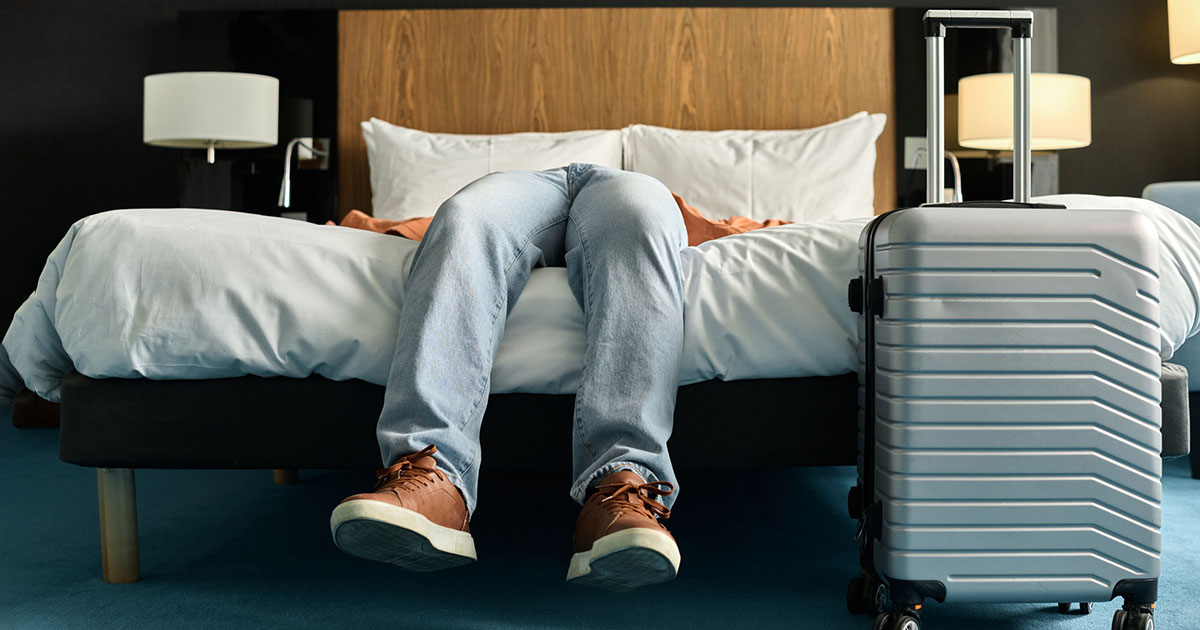
April 9, 2025 – Driven by the popularity of individuals renting homes through online services, Wisconsin’s Department of Agriculture, Trade and Consumer Protection (DATCP) concluded a comment period on proposed regulations on hotels, motels, and tourist rooming houses.
The re-creation of Wis. Admin. Code chapter ATCP 72 expands safety protections, increases fee options, and will require reporting of injuries caused by hotel operations. The definitions section itself adds more than 80 new terms.
DATCP said it regulates an estimated 12,500 hotels, motels, and tourist rooming houses.
The comment period ended on Feb. 21 resulting in more than 20 comments received by DATCP from four public hearings in early February and from direct submissions, according to James Kaplanek, section manager for Retail Food and Recreational Programs.
DATCP is drafting the legislative report to address the comments, which it hopes to submit to the Wisconsin Legislature by the end of this month, Kaplanek said.
According to an “Overview of Administrating Rulemaking Process” available on the Wisconsin State Legislature’s website, the concluding steps of approving a state administrative rule involve the final agency review that includes rule revision concluding with the governor’s signature. Legislative review follows, which can take three months.
If the rule passes legislative review, the Legislative Reference Bureau publishes it. That process can take one to two months. Generally, a rule is effective the first day of the first month after publication.
The proposed regulations came out of a Rule Revision Advisory Committee with DATCP staff and representing the Wisconsin Hotel and Lodging Association, Wisconsin Association of Campground Owners, Wisconsin Realtors Association, Wisconsin County Code Administrators, Wisconsin Association of Local Health Departments and Boards – Environmental Health, and tourist rooming house owners.
Of Wisconsin’s neighboring states, only Iowa and Minnesota use a standardized state sanitation code for regulating lodging facilities, DATCP said, with Minnesota’s rule most closely resembling Wisconsin’s.
‘Modernize the Antiquated’ Regulations
DATCP’s summary explains that the new rules will “modernize the antiquated” chapter, which the Wisconsin Department of Health and Social Services last recreated in July 1985. The regulations became DATCP’s in 2016.
 Jay D. Jerde, Mitchell Hamline 2006, is a legal writer for the State Bar of Wisconsin, Madison. He can be reached by
email or by phone at (608) 250-6126.
Jay D. Jerde, Mitchell Hamline 2006, is a legal writer for the State Bar of Wisconsin, Madison. He can be reached by
email or by phone at (608) 250-6126.
“The lodging options available to tourists [have] dramatically expanded beyond the typical hotel or motel room and occasional lakeside cabin that was available 40 years ago,” DATCP explained.
In addition, “[t]he advent of online home rental services has added to the lodging market with new and unique overnight accommodations options for visitors,” DATCP said.
A new category of specialty lodging recognizes the increased popularity of rustic accommodations. This type of lodging is “typically located in rural or natural settings [that] provides an unconventional lodging experience with no liquid or water carried waste plumbing fixtures.”
Increased definitions – more than 80 new defined terms – are one way in which DATCP is modernizing the rules. DATCP seeks clarity with these definitions.
With several terms incorporating by reference definitions from the Department of Health Services, Department of Natural Resources, and Department of Safety and Professional Services, the new chapter covers the safety issues in one place.
“[B]oth small business and authorized representatives conducting inspections,” DATCP explained, may “speak the same language used within the rule.”
Increased Safety Requirements
More detailed building requirements bring modernization to the buildings themselves. In the past, DATCP explained, prelicensing inspections discovered “potential slip, trip, and fall hazards” at tourist rooming houses that “oftentimes predate any building code requirements.”
New section ATCP 72.18(2) would require handrails for a flight of stairs with more than three risers at a height of between 30 to 38 inches from tread to top of the rail, along with guards along the side to prevent falls.
Similarly, any decks, balconies, or porches more than 30 inches above the floor or ground require handrails and guards.
Sleeping room ceilings would need a minimum height of seven feet for at least half of the room’s floor area, such as under a gabled roof, in section ATCP 72.18(3).
The proposed rules specify more details for water supply safety, whether the water is from public or private wells. New section ATCP 72.16(2)(g)1. creates a duty for owners using private wells to test the well water annually.
DATCP explained that about 388 private wells are located on licensed lodging facilities excluding Dane, Milwaukee, and Taylor counties. Coliform bacteria and nitrate levels are of particular concern.
Because the nature of specialty lodging excludes certain modern conveniences, the proposed rules in section ATCP 72.27 will exclude some plumbing and sewage-disposal requirements.
Instead, the new regulations would require outside water and toilet facilities to be “within 400 walking distance feet.” The owner would be required to inform guests about the unit’s water, sewage, electricity, cooking facilities, and climate control.
Waterborne outbreaks require additional procedures under section ATCP 72.16(3), including communications with DATCP, remediation, and approval to resume operations.
Outbreaks of the bacteria
Legionella, which causes Legionnaire’s Disease, a severe form of pneumonia, would require additional written notification of possible exposure and symptoms provided to current guests and guests from the previous 14 calendar days.
New section ATCP 72.25 would require proprietors to report to DATCP any incident that results in death, injury, or a communicable illness requiring an emergency medical service response related to any provision of the chapter 72 regulations.
New Fee Structure, Higher Fees
The proposed fee structure adapts to the different lodging available, according to DATCP. The current fee schedule in section ATCP 72.05 sets rates for tourist rooming houses and based on number of rooms, four classes of hotels and motels.
The proposed scale in section ATCP 72.08 Tables A and B includes nine categories for tourist rooming houses, seven categories for hotels and motels, and six categories for specialty lodging, all based on number of units.
The rates would increase, according to DATCP, to “accurately reflect the costs of regulatory oversight needed to inspect the growing industry” to reduce “inefficiencies and delays.” The rates recognize the increased cost of inspecting tourist rooming houses or vacation rentals.
Based on existing categories, the annual license fee of a tourist rooming house would initially increase from $100 to $296 for a one-room establishment. A hotel or motel with 5-30 rooms currently pays a $165 permit fee but would pay $350 under the new rules.
Unknown Challenges
While it may make sense to ensure consistent requirements from the largest hotel to the rustic cabin, the effects of sweeping, detailed regulations could involve disproportionate challenges.
Preinspection fees, for example, cost more per unit for smaller properties than larger hotels. Owners of multiple tourist rooming houses or rustic accommodations will pay proportionately more in fees per unit to DATCP.
For example, a single tourist rooming house preinspection costs $590 compared with a hotel of five to 30 rooms at $700, according to proposed ATCP 72.08 Table A. Increased costs of inspecting dispersed units justifies the proportional difference, as DATCP explained.
Code updates to properties potentially triggered by the new rules could also create larger upfront costs for the individual rental owners.
The increased costs could affect Airbnb owners, especially for individuals with short-term rentals who needed the additional rental income, and even more so if the person owns multiple units for short-term rental.
Another consideration specific to the small rental owner is whether the regulations by their effect prevent renting a residence. Adam Vanderheyden, whose practice at Rohde Dales LLP in Sheboygan includes real estate and landlord-tenant concerns, explains, “I want this to be very clear that this does not violate the Right to Rent Law.”
The Right to Rent Law in
Wis. Stats. section 66.1014 sets limits on municipality regulations on short-term rental of residential dwellings. The short-term rental trend stimulated creation of the statewide law in 2017.
